Things to know before planning a trip to Bhutan
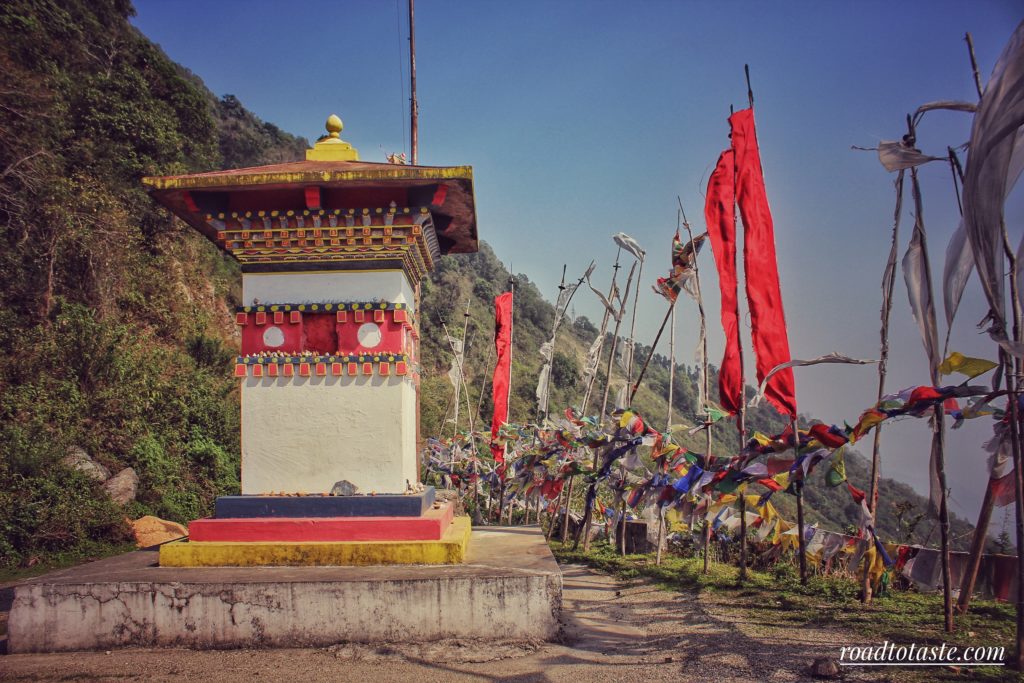
- Peak Season: The peak season favorable to tourists are Spring: March – May and Fall: September – November. It is advisable to plan your travel well in advance if you wish to get the best rates on accommodation, tour package and travel. This period is favorable for the Bhutanese festivals and trekking to the Tiger’s Nest.
- Non-Peak/Off Season: Tourist activities are limited in Bhutan during the non-peak season of December – February and June – August. This period can be useful for people who wish to have a less chaotic and budget friendly state while visiting the country.
- All foreign nationals except for citizens of India, Bangladesh and Maldives are required to obtain Visa while visiting Bhutan.
- The immigration office of Bhutan is functional only on weekdays i.e. Monday to Friday and has a heavy footfall on Mondays. It is advisable to reach Phuentsholing by Sunday evening, stay overnight and apply for the permit on Monday morning.
- All foreign tourists are issued 7 to 14 days tourist permit to enter Bhutan.
- These permits are valid in Thimphu and Paro only and cannot be used to explore other cities.
- The other places/cities of the country are known as Restricted Areas and all foreign nationals should carry a Restricted Area Permit while entering these places like Punakha.
- The tourist permits are usually arranged by the tour operators to provide a hassle free stay. It is always recommended to get your tour arranged by a tour operator as it becomes very smooth while traveling through Bhutan. RS Travels, a popular DMC for Bhutan arranged the permits for us and even arranged a restricted area permit for Punakha on the day of travel to make sure we do not lose on time. Really easy and smooth transaction.
- In case you are traveling on your own then you can get your permit in person from the immigration office at Thimphu.
- There is no fee for issuing the permit to all Indian, Bangladeshi and Maldivian nationals traveling to Bhutan.
- The following travel documents are needed for the Indians when visiting Bhutan: Valid Indian Passport having validity of minimum 6 months; and/or Voter Identity Card, issued by the Election Commission of India. No Visa is required to visit Bhutan.
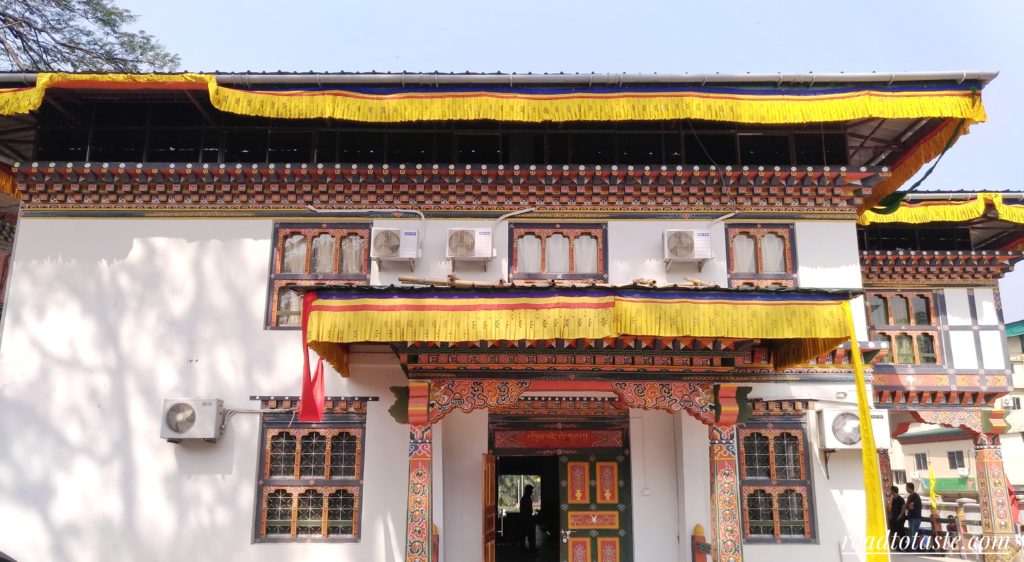
Immigration office Phuentsholing
- Bhutan is 30 mins ahead of Indian timezone, i.e. it is at GMT+06:00 hours.
- It is recommended to either add an additional clock to your smartphone or sync your watch accordingly. This shall be helpful to keep a correct track of time especially if you need to catch a flight.
- The official language of Bhutan is Dzongkha.
- A country with diverse languages, Bhutan also has Hindi and English speaking natives in majority. Thus, an Indian will never feel away from his country and all the foreign nationals can easily converse in English.
- All the working class including the immigration officials, hotel staff and cab drivers are mostly well versed with English.
- Buddhism is the main religion of Bhutan. This country has a lot of monasteries and monks. While the majority practice Buddhism, Hindus form almost 23 percent of the population.
- The people of Bhutan are really helpful and friendly who can go the extra mile to help you if you are lost.
- Very easy to gel with, they entertained and encouraged my participation in a game of carrom at a local restaurant on the way to Thimphu.
- They are also really sensitive about their country. Kindly refrain from saying anything bad about the country, infrastructure or spirit of Bhutan as the people feel highly offended.
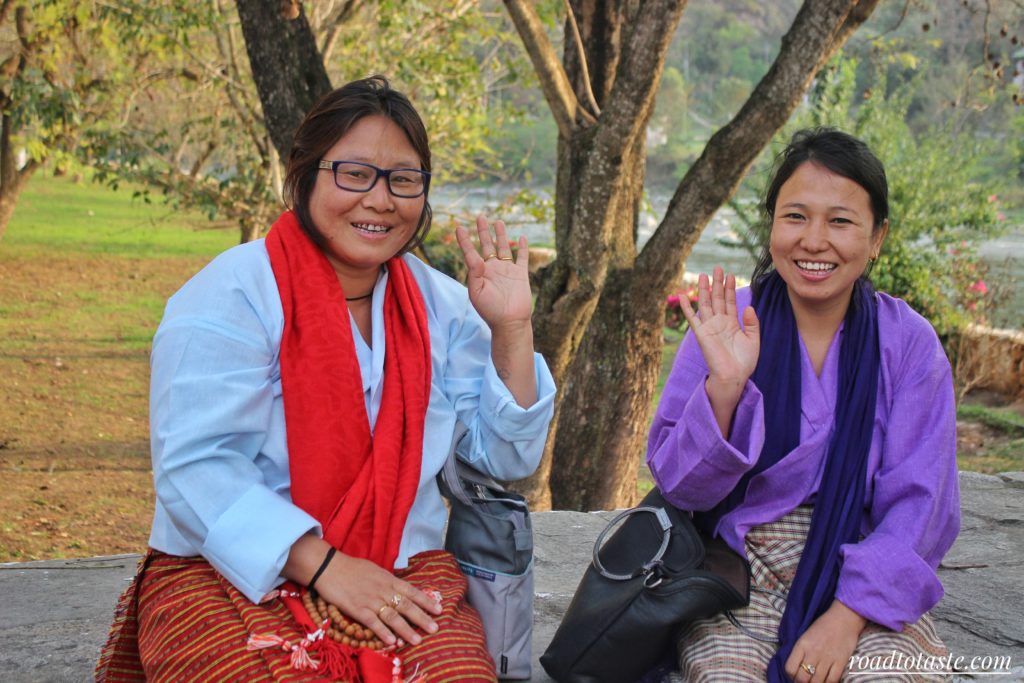
- A moderately spicier version of Indian food is Bhutanese food. Majority of their dishes have chilly as the key ingredient.
- Ema Dhatse, a Bhutanese dish is a must try from the Bhutanese Cuisine.
- We had Bhutanese food at Folk Heritage Museum in Thimphu and it was a platter recommended to anyone who wishes to try Bhutanese cuisine.
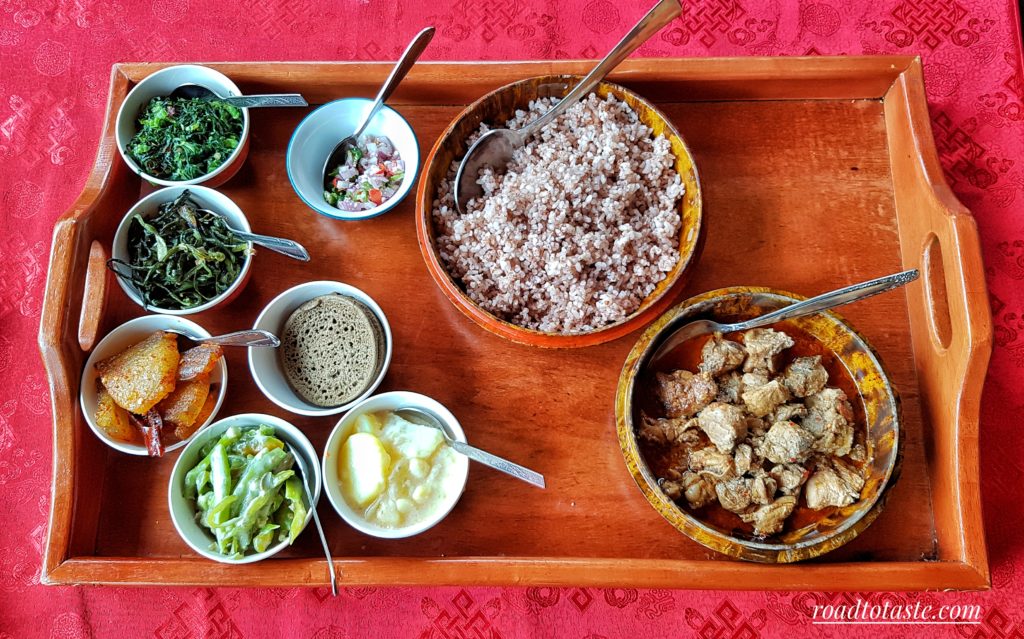
- One can find a plethora of stay options in Bhutan based on their need. Hotels of Bhutan are mostly comfortable, well maintained and are very tourist friendly. We stayed at the Park Hotel in Phuentsholing which was a comfortable and cozy stay option. The advantage was that it was very close to the immigration office making it easier for us to commute to and fro for procuring our permit.
- Thimphu being the capital city has several 4 to 5 star properties along with other luxurious stay options. Our hotel, Hotel Ariya at Thimphu was an excellent 4 star property with the luxuries and comfort of a 5 star. The suite room of the hotel given to us had a dining area, seating area, study and bedroom along with all the latest amenities in the washroom. Located close to the city market made it very convenient for a stroll to the market in the evening.
- Paro has more resort stays than hotels owing to the river Phu Chu on the banks of the city. The airport city of Bhutan has many resorts providing comfortable stays with facilities like bonfire too. Our resort Tashi Namgay at Paro was one of the most beautiful resorts we have stayed in. Right opposite to the airport and on the banks of the river made it a beautiful site to stay at. Also the facilities, services and recreational activities within the resort made it a perfect vacation spot.
- Our friends had different hotels in Thimphu and Paro, White Tara and Base Camp Resort respectively. While both the properties were 3 star, they had all the good things one can ask for in a 3 star property. Spacious, clean and well connected to the market made them the perfect choice to stay for lesser money.
- Bhutan also has many home-stay options which provide food also with a complete homely environment. This can be a better choice if you are on a budget trip or wish to spend a long time in Bhutan.
- The tour operators usually arrange the hotels as per your budget and need. RS Travels organized a perfect stay for us and our friends at all the 3 places suiting the budget well.
- Soon we will be writing about to how to explore Bhutan in less than 20K INR where we shall be giving more details about the hotels and stay options.
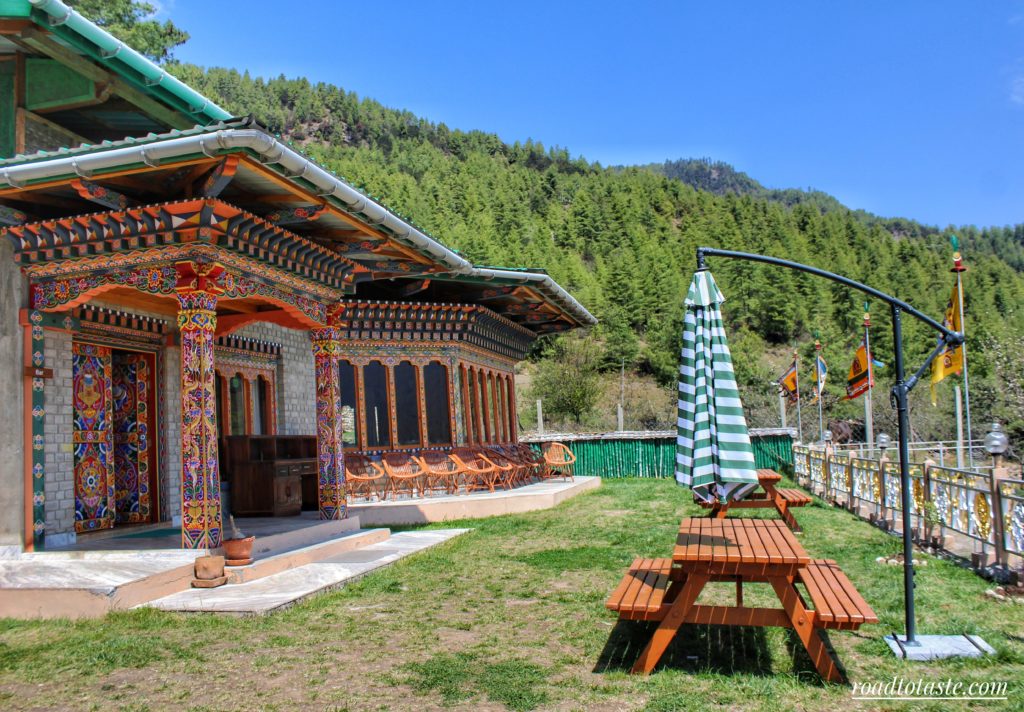
Hotel Base Camp, Paro
- Bhutanese Ngultrum is the official currency of Bhutan. The value of Ngultrum is equivalent to Indian Rupee. Indian currency is accepted easily throughout Bhutan. However, it is recommended to carry Indian currency of lower denomination than 500 while traveling from Phuentsholing to Thimphu or Paro as 500 is not accepted at some places in Thimphu and Paro.
- There are very less or almost no ATMs of Indian Banks in Thimphu and Paro so it is recommended to carry cash accordingly.
- Credit cards are accepted at all major stores.
- A country which protects its culture and values even with its dress, Bhutan has a national dress for its people. The best part is that all citizens of this country love and respect their national dress and carry it with pride.
- For men it is Gho and for women it is Kirafor. You can find the locals wearing their national dress on all working days and in offices.
- The days are usually warm and the nights are cold with chilly winds. It is recommended to carry a mix of summer and winter apparels when visiting Bhutan. As the climate of Bhutan changes frequently, carrying a raincoat or an umbrella is always helpful and recommended.
- A pair of extra shoes for hiking is a must if you have plans for a walk or a trek to the Tiger’s Nest in Bhutan.
- Full sleeves shirts and full-length trousers/jeans are a must to enter the Tiger’s Nest in Paro.
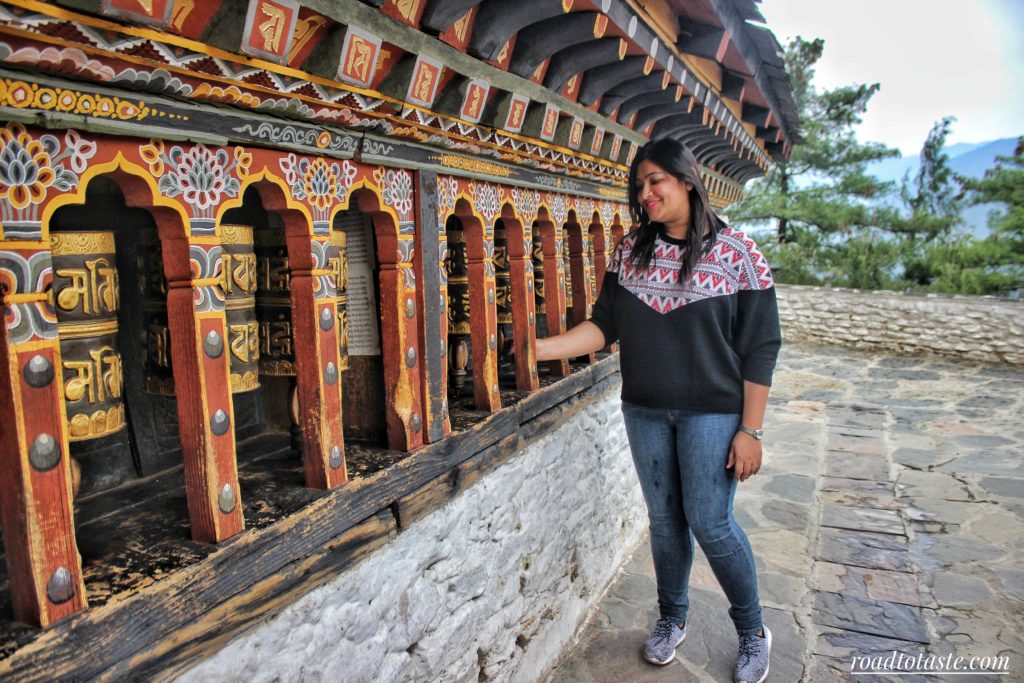
- Photographing People: It is always a pleasure to capture the people of Bhutan through your lens. Their ever smiling faces, friendly nature and satisfaction in their souls make them a perfect shot for candid photography. However, it is advisable to seek their permission before clicking their pictures. Some people are not comfortable in getting themselves clicked and would politely say a no.
- Photographing Places: Bhutan is a photographer’s paradise for capturing the landscapes. With lush green environment to beautiful monasteries and alluring Himalayas, one can find a perfect frame in every shot. While outdoor photography is allowed easily, it is be prohibited in many of the temples, dzongs and monasteries. It is recommended to check with your guide or the locals before taking pictures within a dzong or monastery. Places like Tiger’s Nest do not allow any digital devices to be carried inside while the Punakha Dzong allowed indoor photography.
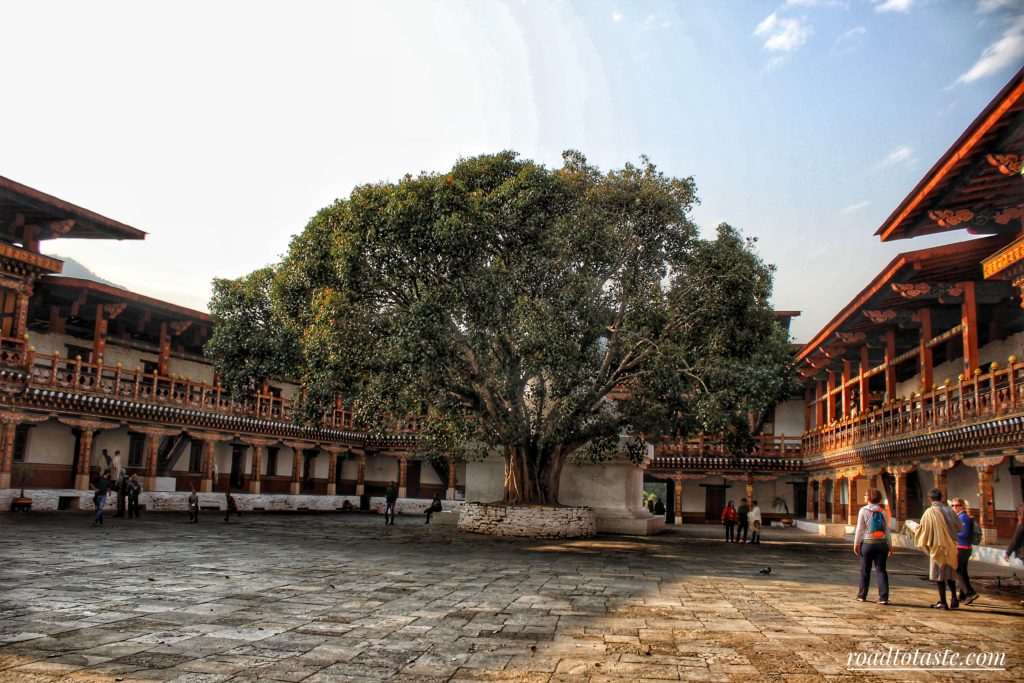
Inside Punakha Dzong
11. Phone Connectivity in Bhutan
- Indian SIM Cards work till Phuentsholing, the border town of Bhutan. However, answering or making calls can blow a hole in your pocket as it incurs International Roaming Charges. Most of the hotels have a free WiFi facility to stay connected via Whatsapp, etc.
- One can opt for a local SIM card which works all throughout Bhutan and can be obtained after getting the permit. The major service providers in Bhutan are Tashi Cell and B-Mobile. We opted for Tashi Cell and got the connection at an initial amount of 450INR which came with a talk-time of 250INR.
- You can also opt for a data-pack if you wish to be online all the time, however, the data usage charges on the main balance is pretty low so it is recommended to use the main balance only.
12. Bhutan sleeps early
- Bhutanese people firmly believe in early to bed and early to rise. Most shops and restaurants get closed by 10 and the last order is mostly taken by 8:30.
- It is recommended to book a table and place and order early if you wish to dine out in Bhutan. Even the hotels that you are staying in prefer to take an early confirmation for dinner.
- Tuesdays are the dry days throughout Bhutan. While drinking isn’t a taboo in this country and one can find a bar in almost all the restaurant or eateries, Tuesdays are observed as the National Dry Day.
- All the pubs are also closed on Tuesday and it is difficult to find booze if you wish to.
- You can haggle in most shops but don’t expect more than 10% discount. Generally speaking, prices between shops don’t differ substantially.
- As Indians we love to show-off our bargaining skills, but Bhutanese do not appreciate it much. It is generally considered as a bad practice to bargain in Bhutan, so even if we showcase our talent and ask for half the price, they will only reduce a little from the price they fixed. Saumya smartly asked for neighbor discount being an Indian, however could not steal more than 10% discount.
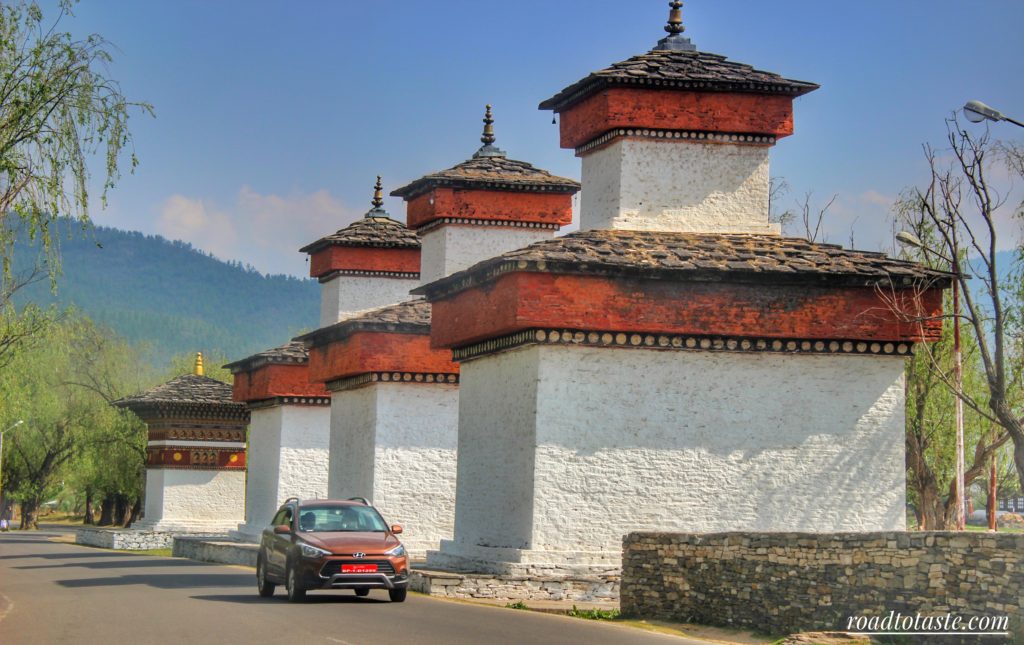
- Bhutan is one country which allows you to drive holding an Indian license. However, you need to have complete documents of the vehicle you are driving including the Registration Certificate, Insurance and Pollution Under Control certificate.
- If you wish to take your private vehicle through Bhutan, you must get a permit for the same from Phuentsholing. The permit is available at a nominal fee on presenting all the documents.
- Tshechu, meaning “day 10” are yearly religious Bhutanese festivals held in each district of Bhutan. Tschechus are held to honor Guru Rinpoche (Padmasambhava), who brought a Tantric form of Buddhism to Bhutan in 8th century.
- The festival includes the various cultural shows like dance, plays and religious dramatizations. It is a perfect occasion for the tourists to understand the culture and people of Bhutan.
- Here are the 5 best festivals in Bhutan: Thimphu Tshechu, Paro Tshechu, Jambay Lhakhang Drup, Punakha Drubchen, Haa Summer Festival. We missed Paro Tshechu by a day.
- To know more about the dates of these festivals click here
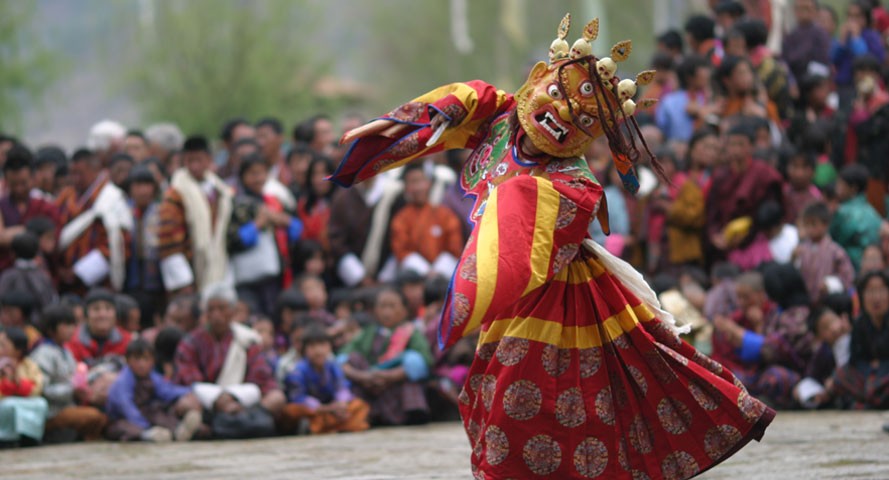
Mask dance!
PS: This trip was sponsored for RoadtoTaste by RS Travels, Jaigaon and the experiences or views shared are solely of the author and is not influenced in any way.
To get your bookings done from RS Travels, you can check their website or connect with them on Facebook.
Liked it. Pin it.
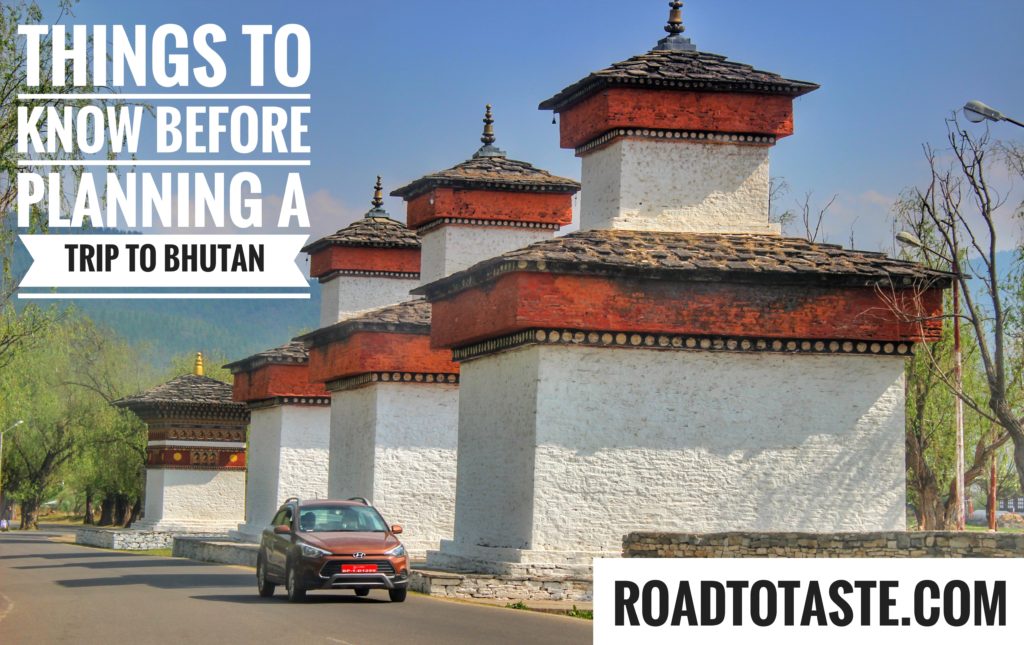

2 comments
Agreed on most of the points as mentioned Bhutan is the country of holiday destination, you can visit throughout the year. Not the peak season but I found a best budget tour in February by my local tour operator “Bhutan Mahayana Tours”
very informative details about Bhutan